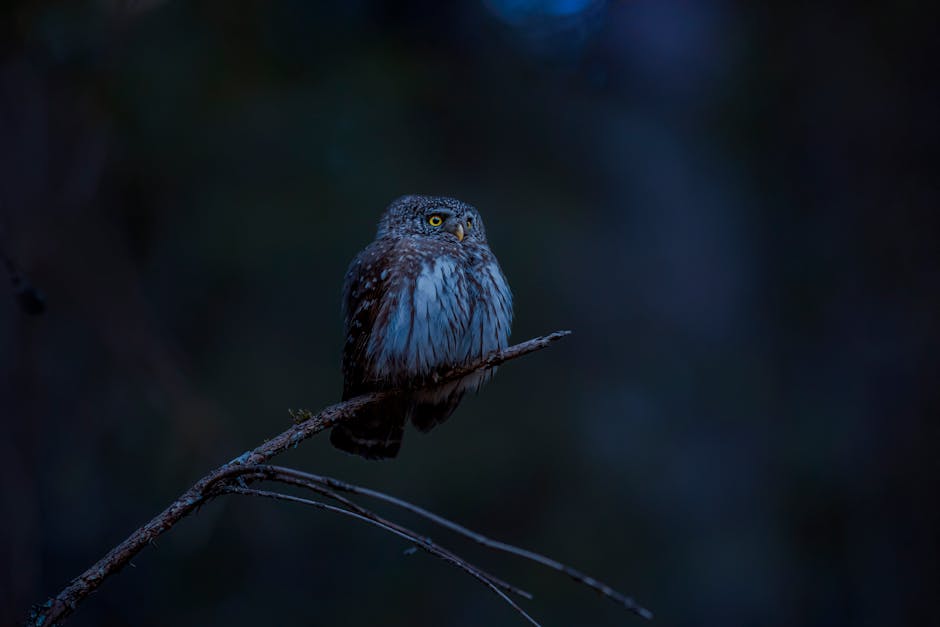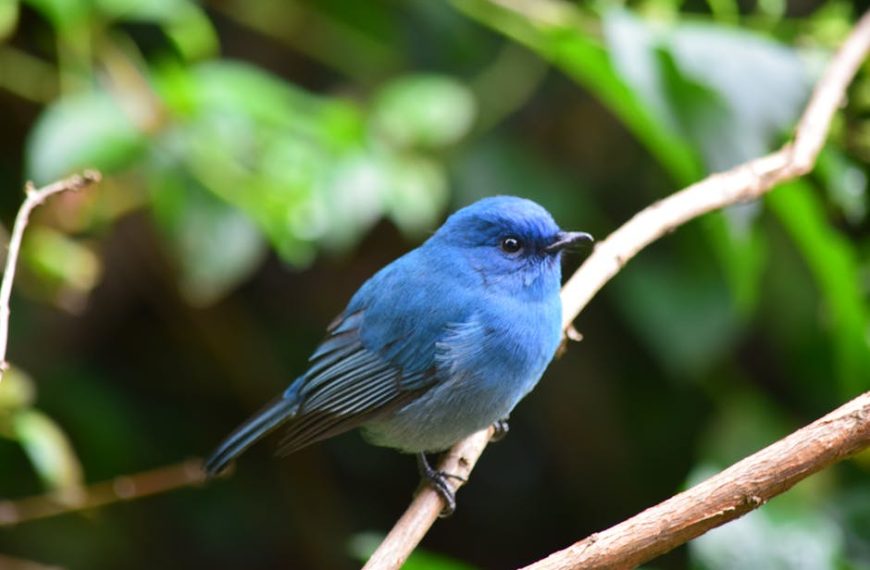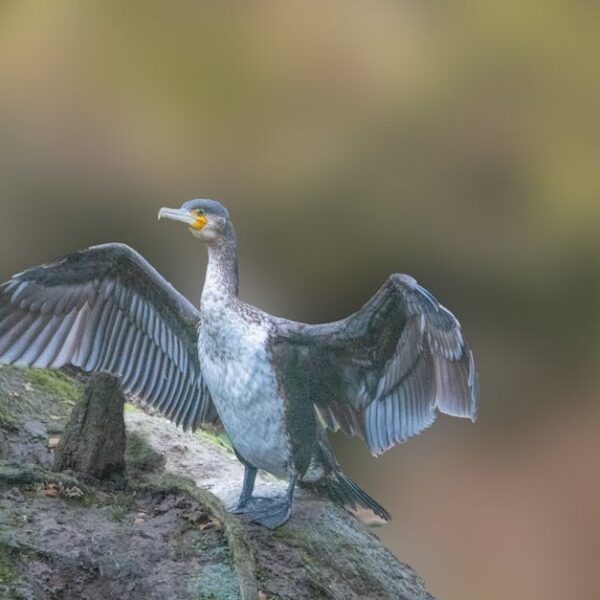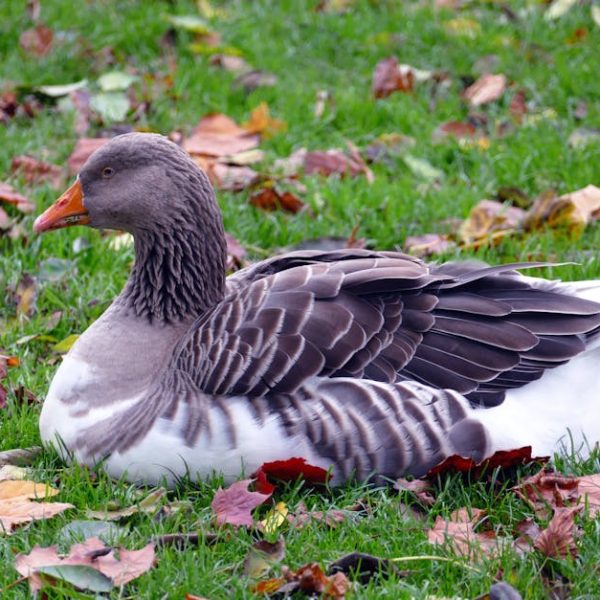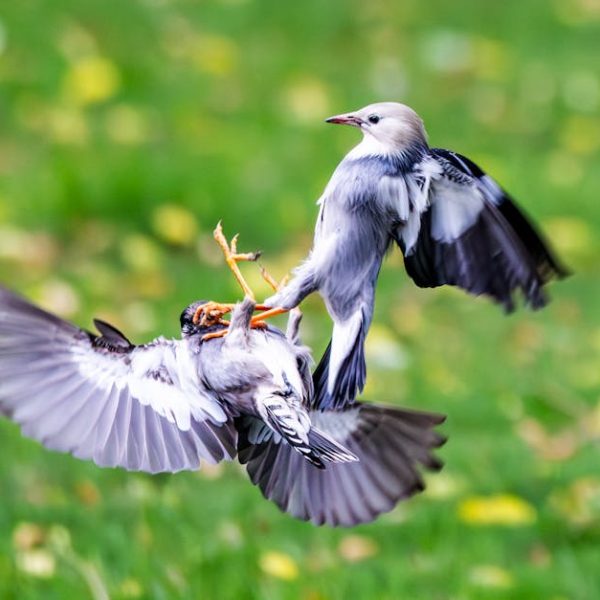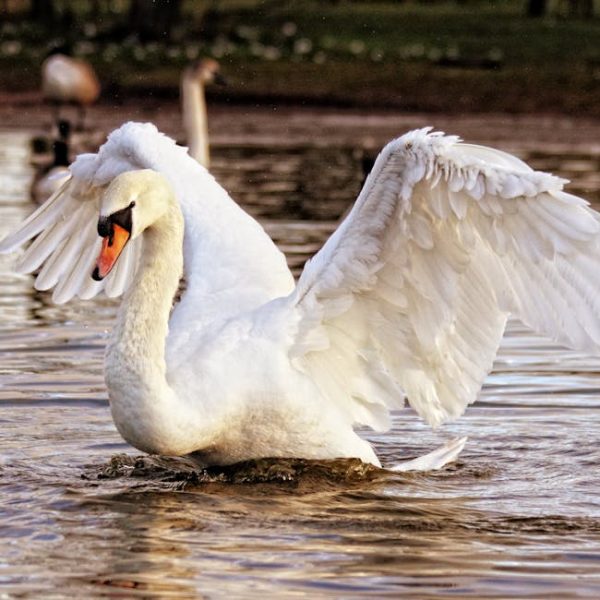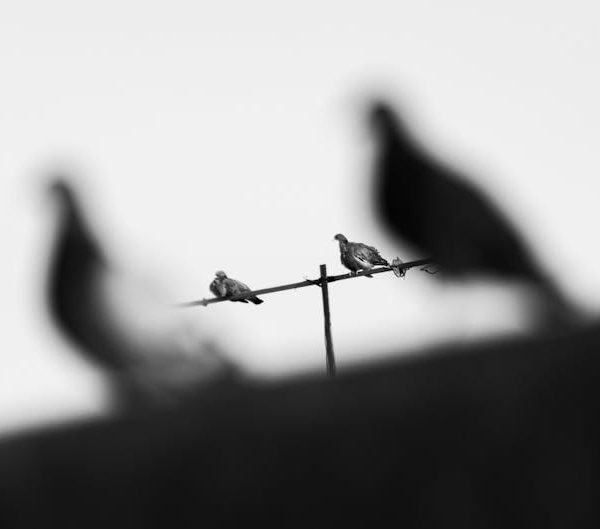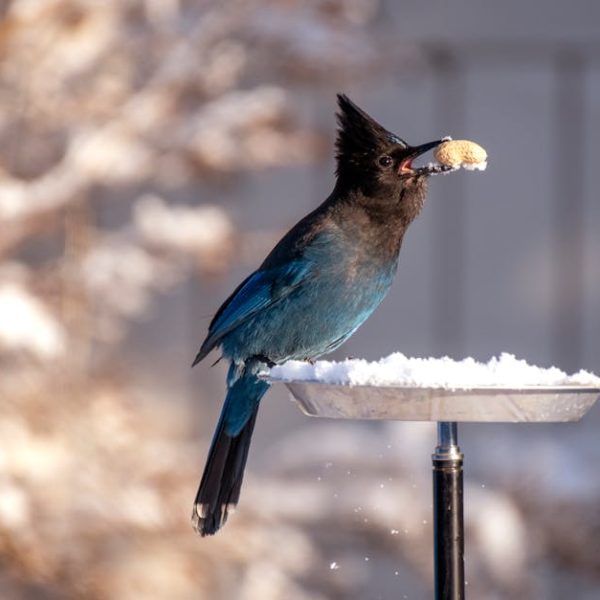Imagine experiencing a dark, peaceful night under the stars and then suddenly being serenaded by the eerie or soothing songs of nighttime birds. Yes, you heard right, songs in the dead of night. This isn’t the usual chatter you might have thought belonged solely to day-time flyers. The nocturnal chorus is a unique symphony with its rhythm, performed by birds known and loved for their night songs.
Understanding the Basics: What is Nighttime Singing?
Nighttime singing is a common behavior found mostly among nocturnal birds – birds that are active during the night and rest during the day. Unlike day-time birds, which reserve their singing for daylight hours in the busyness of feeding and breeding, nocturnal birds let loose their melodies when most of the world is asleep.
Let’s share a moment in spotlighting some of these amazing nocturnal singers:
- Nightingales: Known for their rich and melodious song that echoes throughout the night.
- Northern Mockingbirds: This species is famous for singing all night long, especially under urban lights.
- Owls: Various types of owls, such as the Barn owl and Eastern Screech owl, produce characteristic hooting sounds.
Pro Tip: The next time you plan to witness these night concerts, remember to carry a pair of night vision binoculars. Never use flashlights as they can startle birds and disrupt their natural behaviors.
Unraveling the Reasons: Why Birds Sing at Night
Birds singing at night is not aimless entertainment. Different scientific theories suggest a deeper meaning – from territory marking to attracting mates, without the competition of the day’s noise pollution. Let’s break down these reasons:
- Mating Calls: Some birds use night songs to attract mates. The darkness reduces visual distractions, making the song a powerful means of communication.
- Territory Marking: Birds often sing to establish and defend their territory. The song’s reach is amplified in the stillness of the night.
- Lack of Noise Pollution: During the night, fewer vehicles, people, and, especially, fewer other birds make noise. Thus, the nighttime provides a serene platform for birds to communicate.
Remember: These contributing factors to nighttime bird song can often overlap, with a single song serving multiple purposes.
Meeting both the benefits and potential drawbacks, nighttime singing provides a quiet platform for mating calls or territory marking, but can also expose birds to predators and cause them exhaustion.
Peculiar Birds: Examining Nocturnal Bird Species
Specific nocturnal bird species have adapted their life cycle to own the night, and their singing habits are no exception. For instance, the Nightjar feeds at dusk or dawn and rests all day, utilizing the evening hours to stake chorusing territories or court mates. Owls use their hoots to distinguish themselves, define territories, or signal alarms.
Best Practices: Identifying different bird songs at night requires tuning into unique frequencies and being patient. Download a bird song recognition app to help you discern various nocturnal songs. Always respect the birds’ natural habitat and avoid disturbing them.
Stay tuned to the next part of the article to further delve into the world of birds’ night time serenade.
Auditory Delight: Appreciating the Nighttime Birdsong
The dark can create a beautiful concert of unique bird songs that appeal to avid birdwatchers and nature enthusiasts. But why stop at just appreciation? These songs can be beneficial for humans and have therapeutic effects.
Many people have found that listening to bird songs at night helps them unwind, reducing stress and anxiety. Imagine ending your day with a peaceful symphony, a calming presence acting as a gentle serenade to lull you into a state of relaxation.
Pro Tips: To engage in immersive bird listening sessions at night, make sure to choose a convenient and safe spot. Stay quiet, listen attentively, and keep a slow pace while moving. Remember, night birdwatching can be an incredible experience, but it should never interrupt bird life and their natural behavior.
Affecting Factors: How Light Pollution Influences Nighttime Birdsong
While we revel in the enjoyable and calming songs of birds at night, it’s important to address something that, unfortunately, can drastically impact the nocturnal singing habits of birds – light pollution.
Artificial light from our buildings, streets, and homes can disrupt the biological rhythms of nocturnal birds. Light pollution can cause these birds to alter their sleeping habits and sing at unusual hours. Not only does this create an adverse toll on their health, but it also negatively affects their breeding patterns.
| Urban Areas | Rural Settings | |
|---|---|---|
| Bird Behavior | Birds in urban areas are more often found to disrupt their natural nocturnal singing cycle and sing at unusual hours due to higher exposure to light pollution. | Birds in rural settings display a more natural and predictable pattern of nighttime singing with minimal light interference. |
| Solutions | Urban areas can monitor and manage light pollution by implementing curfews on unnecessary outdoor lighting, utilizing motion sensor lights, or using low-glare bulbs. | Rural settings typically require less light control, but care should still be taken to prevent light pollution where possible. |
To attract these beautiful nighttime singers and aid them in their life processes, make sure you contribute as little as possible to light pollution. Remember, their songs are not just aesthetic delights; they are fundamental to their survival and reproduction.
Let’s celebrate the mystery of nocturnal birds, not just by enjoying their night concerts but also by understanding and respecting their way of life. Enjoy the night song, but tread lightly under their stars.
Key Takeaway:
- Nighttime singing is a distinctive behavior of nocturnal birds, influenced by various factors including mating, marking territory and reduced noise pollution.
- Specific nocturnal species including Nightingales and Northern Mockingbirds are known for their nocturnal songs.
- Bird song at night carries therapeutic effects for humans and can aid in stress release.
- Light pollution generated by humans disrupts the biological rhythms of nocturnal birds, leading to changes in their sleeping habits and singing patterns.
Rest assured, understanding and appreciating the nighttime song of birds isn’t just a hobby, but a step towards coexisting with nature harmoniously. Let’s continue being mindful of our impact on these nocturnal friends, as their beautiful music thrives best amidst the peace of night. Reduced light pollution is a small contribution to their welfare, but a significant one nonetheless.
FAQs
Q: Are there any specific times at night when birds sing more often?
A: While it can vary among species, birds often sing most actively during twilight hours – dawn and dusk. However, some can be heard singing throughout the entire night.
Q: Can listening to nocturnal bird song have health benefits?
A: Yes, many people find listening to bird song at night to have therapeutic effects, helping reduce stress and anxiety, and promoting relaxation and calmness.
Q: Does the frequency of bird song at night change with seasons?
A: Yes, birds typically sing more frequently during the breeding season which often corresponds with springtime. This can vary among different species and geographic locations.
Q: Is there any difference between the songs of nocturnal birds and diurnal birds?
A: Although both nocturnal and diurnal birds use song for similar purposes like attracting mates and marking territory, the actual songs can vary widely in terms of pitch, rhythm, and complexity based on species.
Q: What can I do to support the birds singing near my home at night?
A: Reducing light pollution is a crucial step. Try switching off unnecessary lights at night and using blinds or curtains. Also, plant native vegetation to provide natural habitat and food resources for local bird species.
Remember, knowledge is power. We can all play a part in preserving the natural behaviors of these fascinating nocturnal singers. Feel free to share this article with your friends and explore more posts on our site!
